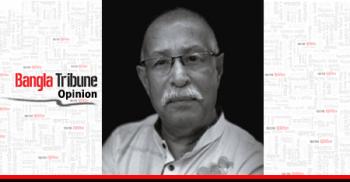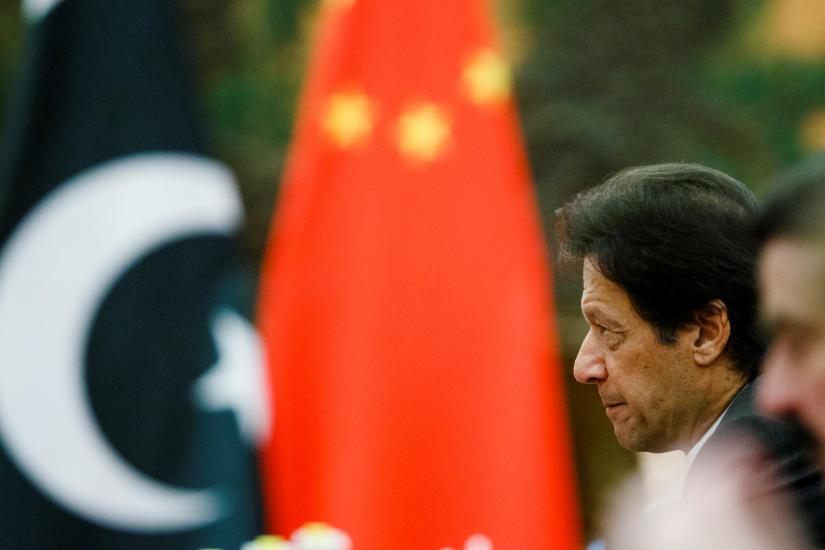 Before coming to power, the Pakistan Tehreek-e-Insaf (PTI) or “Movement for Justice” party leadership made a grandiose guarantee of introducing reforms during its first 100 days, including the provision of an economic break to the people of Pakistan.
Before coming to power, the Pakistan Tehreek-e-Insaf (PTI) or “Movement for Justice” party leadership made a grandiose guarantee of introducing reforms during its first 100 days, including the provision of an economic break to the people of Pakistan.
After less than a year in power, Imran Khan's prime minister-ship that began with a slogan “Naya Pakistan” has instead adopted the role of ‘demo-creator’. An elected government made a U-turn from democracy to dictatorship backed by the infamous Pakistan Army already tainted BY corruption, favouritism, atrocities in Balochistan and Waziristan, most importantly aiding and abetting internationally listed Jihadists, namely the dreaded Taliban, Jash-e-Mohammad (JeM) and Lashkar-e-Taiba (LeT) organisations.
Celebrated cricket star turned politician’s hallmark political agenda received global appreciation when he promised to transform the country’s governance structure by furthering accountability, empowering people at the grassroots, and depoliticizing and strengthening the police nationwide.
Many consider he won his victory in the dirtiest general election in the country's 73-year history, with opposition parties and international observers alleging that it was the all-powerful Pakistan military that helped him win, Taha Siddiqui critiquing Naya Pakistan’s 100 days writes in Aljazeera news portal.
The PTI government stressed that the new government under the supervision of Imran Khan would surely utilize existing economic opportunities to ensure the emancipation of the people of Pakistan.
The China-Pakistan Economic Corridor – CPEC has raised suspicion among the fiery Baloch nationalists. Freedom-seeking guerilla leaders in Balochistan opposed the project. Also, the mainstream electronic and print media, academics and opposition politicians are sceptical of China’s multibillion-dollar Belt and Road Initiative (BRI), a “21st-century silk road” originating from south of Mongolia through the middle of Pakistan, which reaches out to Gwadar Port and opens into the Arabian Sea.
Elected on high hopes to battle corruption and fix Pakistan’s economic malaise, the new prime minister announced a raft of ambitious targets for his first 100 days in office.
In the political game of zero-tolerance on corruption, a series of crackdowns have led to the detention of star political leaders of once ruling Pakistan Peoples Party and Pakistan Muslim League (Nawaz), presently in the opposition. Many corrupt members of Khan's party have not faced any probes. All this led many in Pakistan to brand Imran Khan's accountability drive a political witch-hunt aimed at silencing the opposition, writes Taha Siddiqui.
Many corrupt members of Khan's party have not faced any probes. All this led many in Pakistan to brand Imran Khan's accountability drive a political witch-hunt aimed at silencing the opposition, writes Taha Siddiqui.
Pakistan Finance Minister Asad Umar told Bloomberg news agency recently that recovering from cash crunch becomes “the more expensive” option as time passes.
The finances are dwindling and Islamabad is negotiating an International Monetary Fund bailout. Saudi Arabia deposited $1 billion this month of a total $3 billion it pledged to boost the country’s foreign exchange reserves.
Khan’s biggest failure is that he failed to reach Pakistan's neighbours in South Asia. Pakistan has no trade or economic ties, or any goodwill in its relationship with its neighbours, except diplomatic relations. Its relationship with Bangladesh, Afghanistan, and India are at the lowest ebb.
The cricket star in his maiden speech said he made an offer to India for peace talks immediately after coming to power.
Pakistani journalist Taha Siddiqui living in exile in France, dealing with the human rights agenda writes Pakistan’s rights activists who speak up about the rule of law and people's rights are being targeted by the authorities. Gulalai Ismail, an award-winning women rights activist, is currently in hiding for drawing attention to the plight of the Pashtun community, Pakistan's second-largest ethnic group.
The New York-based Committee to Protect Journalists (CPJ) states that Pakistan’s “Invisible Censor Board” has gone into overdrive lately — blocking news broadcasts, forcing journalists off social media, banning opposition leaders from television, running fake viral campaigns threatening journalists.
On the other hand, independent media in Pakistan is struggling to keep their heads above the water. Dawn, one of the strongest independent secular voice, has faced forced disruptions to circulation. Government has deliberately cut advertisements as well as private ads, says Zaffar Abbas, editor of Dawn newspaper and recipient the CPJ’s 2019 Gwen Ifill Press Freedom Award.
The nation born 72 years ago is still on a rocking boat unable to recover from damage control mode.
Saleem Samad, is a journalist, recipient of Ashoka Fellow (USA) and Hellman-Hammett Award, also Bangladesh correspondent of Paris based international media rights organization, Reporters Without Borders (RSF). Twitter @saleemsamad; Email: [email protected]
 Opinion
Opinion
30754 hour(s) 39 minute(s) ago ;
Morning 05:33 ; Saturday ; Apr 20, 2024
Imran Khan’s first year on a rocking boat
Send
Saleem Samad
Published : 16:27, Aug 10, 2019 | Updated : 16:35, Aug 10, 2019
Published : 16:27, Aug 10, 2019 | Updated : 16:35, Aug 10, 2019
0 ...0 ...
/hb/
Topics: Top Stories
***The opinions, beliefs and viewpoints expressed in this article are those of the author and do not reflect the opinions and views of Bangla Tribune.
- KOICA donates medical supplies to BSMMU
- 5 more flights to take back British nationals to London
- Covid19: Rajarbagh, Mohammadpur worst affected
- Momen joins UN solidarity song over COVID-19 combat
- Covid-19: OIC to hold special meeting
- WFP begins food distribution in Cox’s Bazar
- WFP begins food distribution in Cox’s Bazar
- 290 return home to Australia
- Third charter flight for US citizens to return home
- Dhaka proposes to postpone D8 Summit
Unauthorized use of news, image, information, etc published by Bangla Tribune is punishable by copyright law. Appropriate legal steps will be taken by the management against any person or body that infringes those laws.
Bangla Tribune is one of the most revered online newspapers in Bangladesh, due to its reputation of neutral coverage and incisive analysis.
F R Tower, 8/C Panthapath, Shukrabad, Dhaka-1207 | Phone: 58151324; 58151326, Fax: 58151329 | Mob: 01730794527, 01730794528


